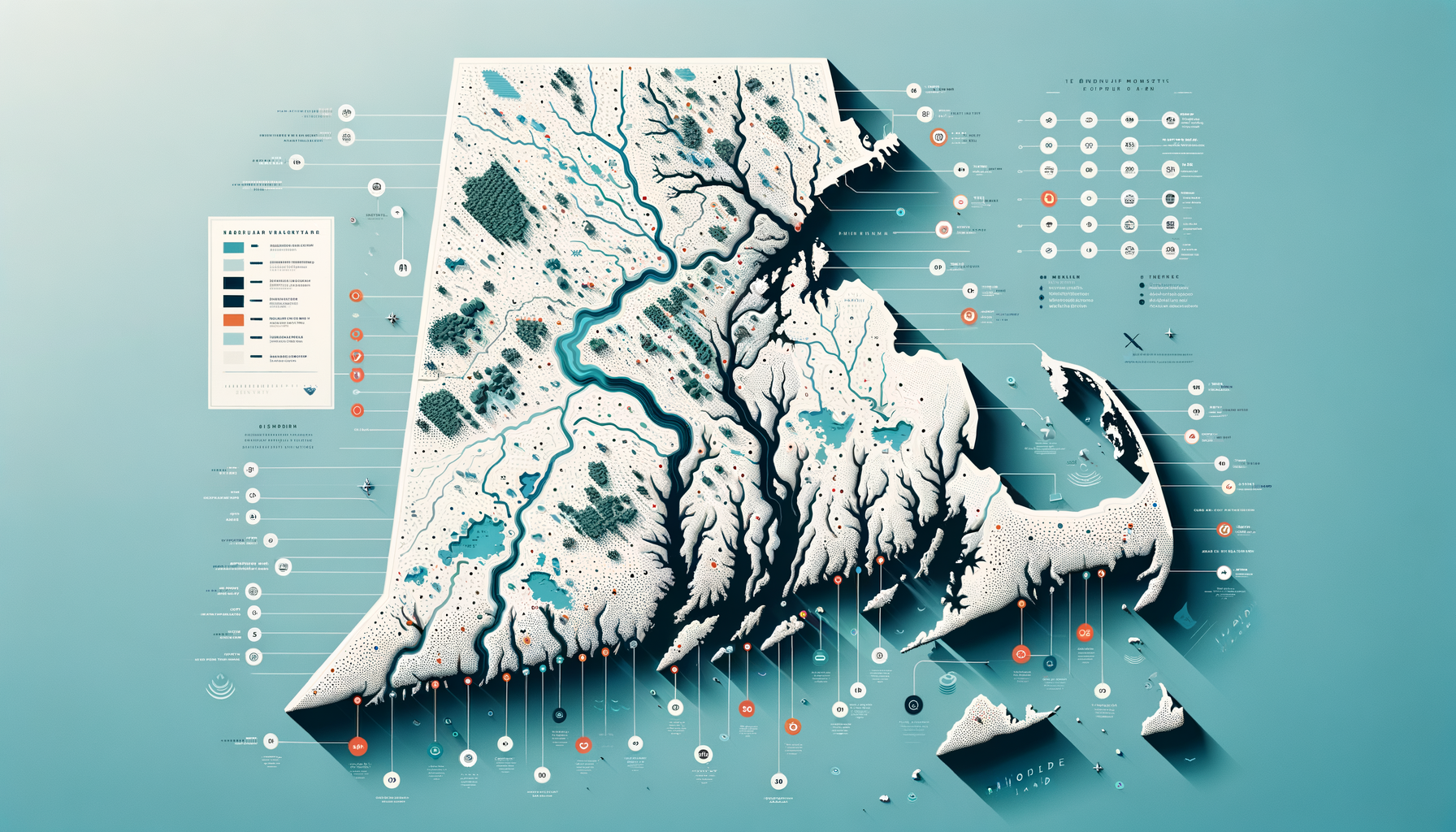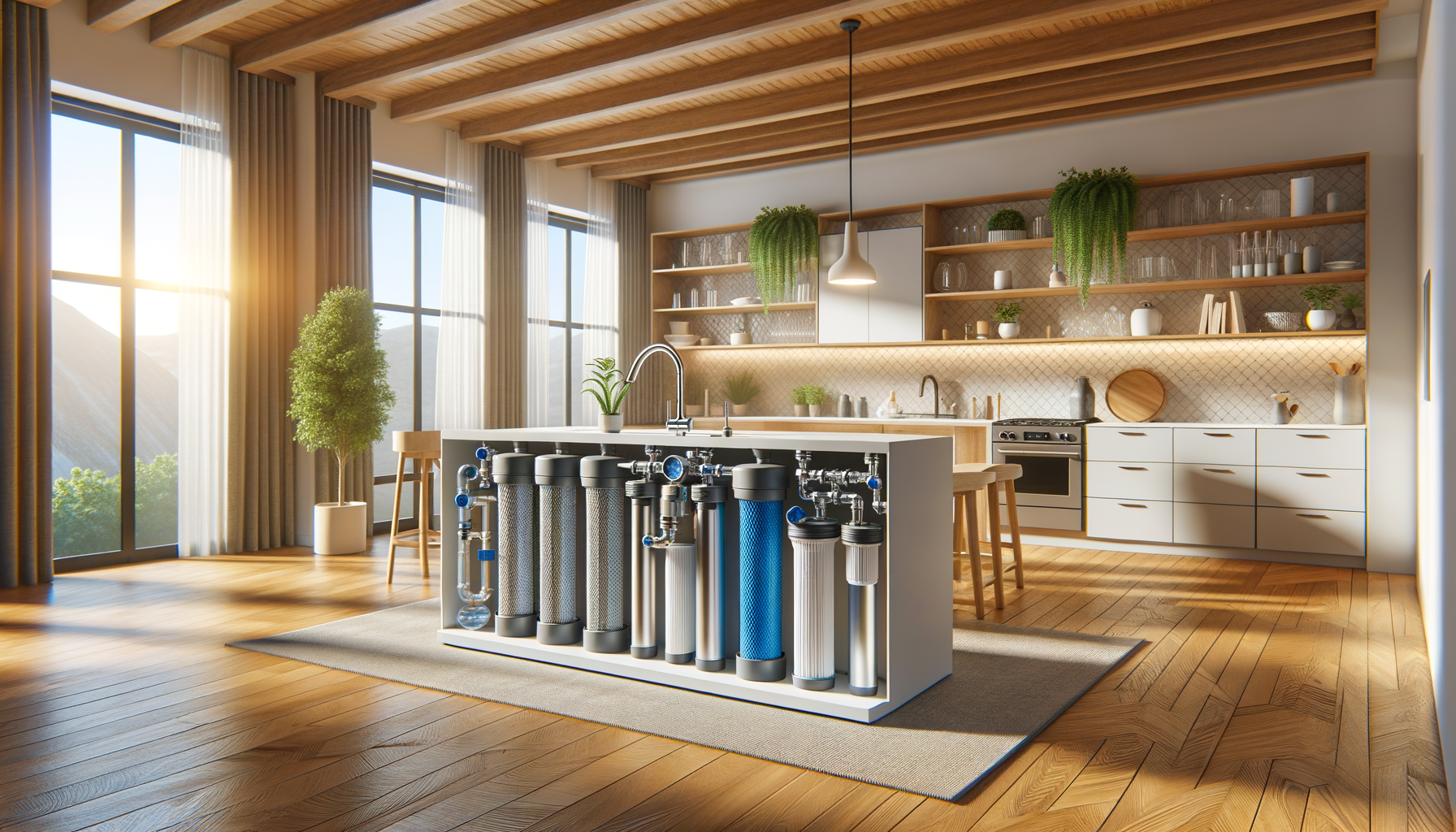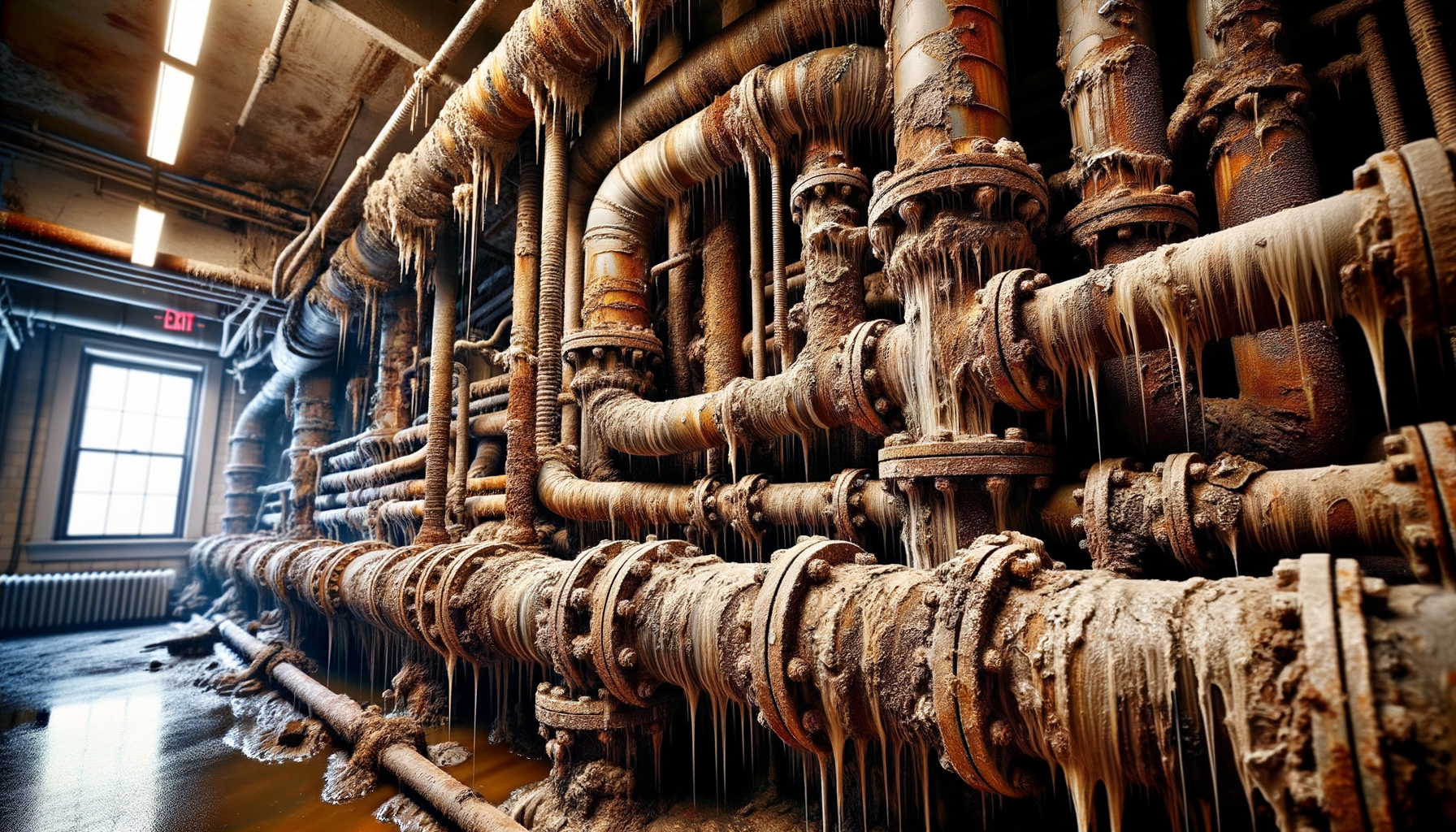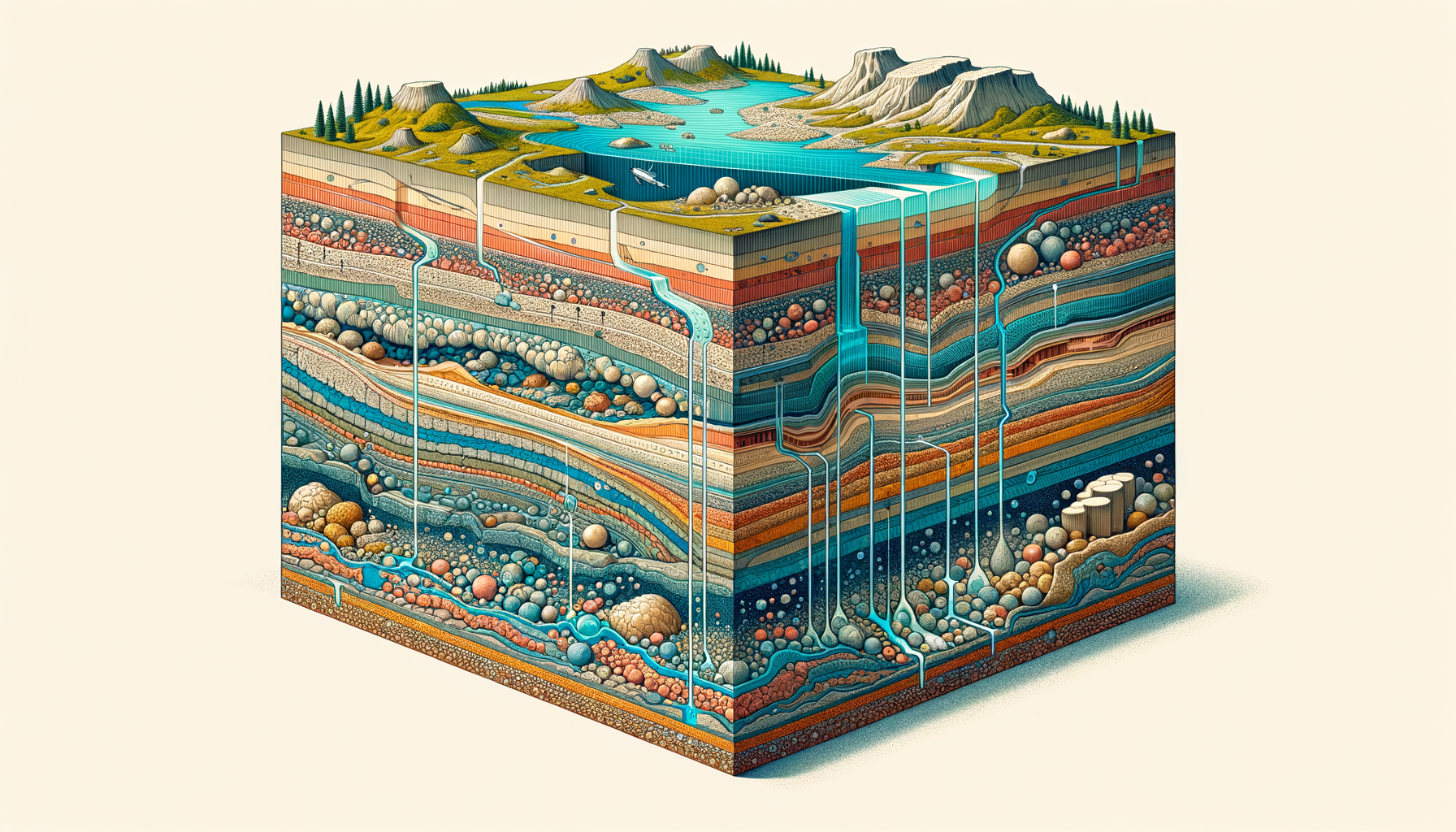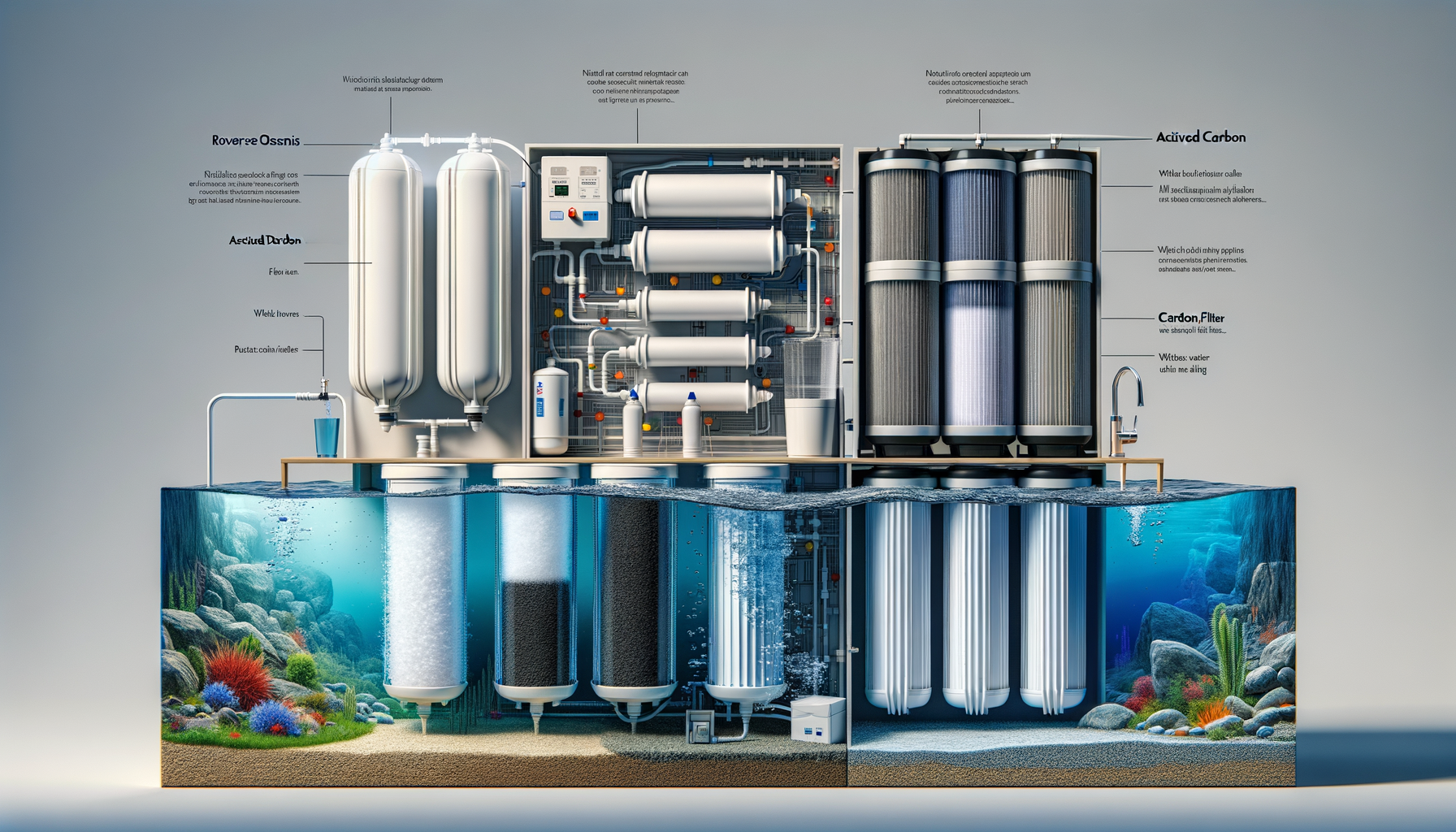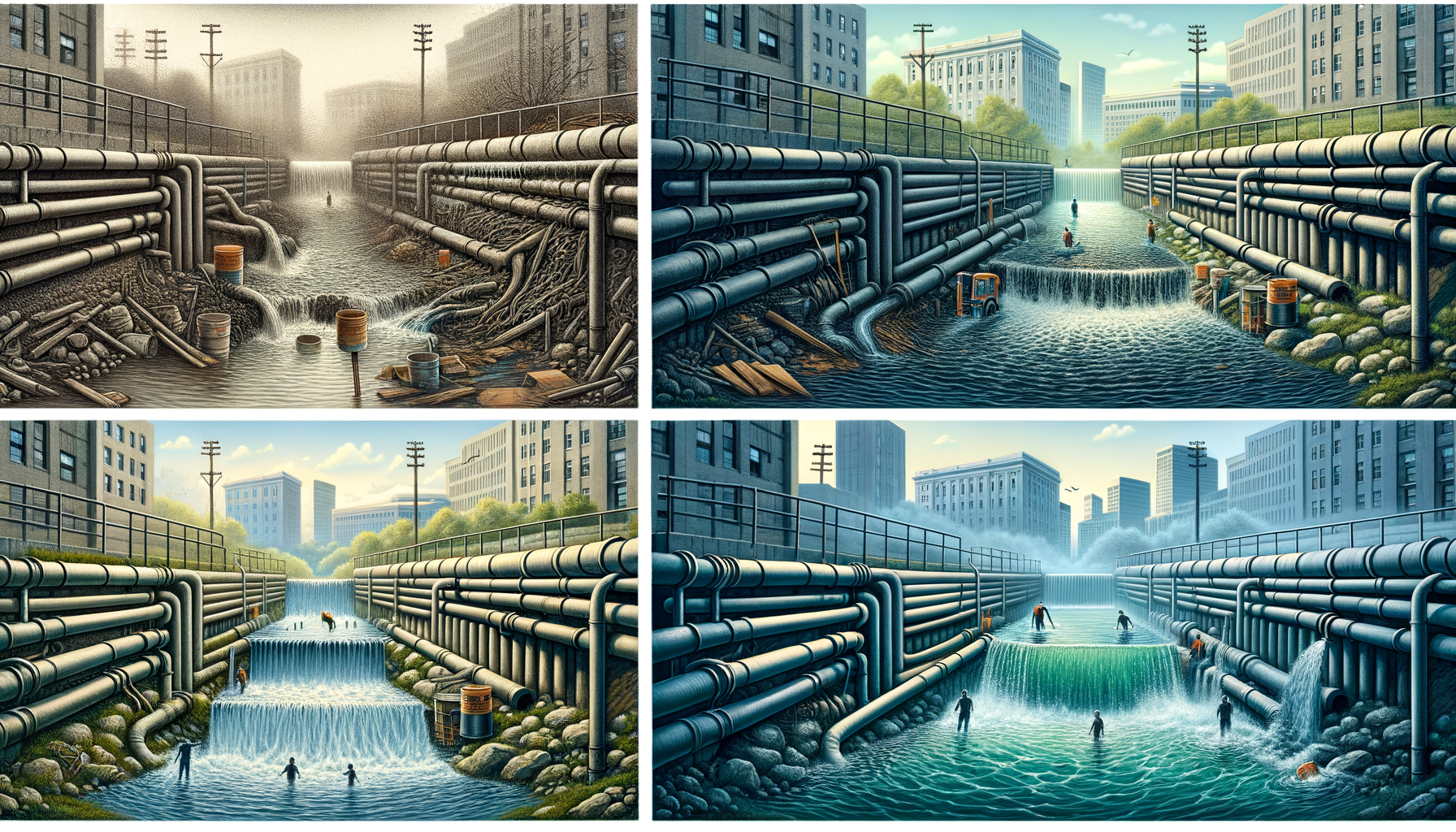Comprehensive Guide to Water Quality in Rhode Island State: Contaminants, Issues, and Water Filtration Solutions
by Ryan Moreau / updated February 28th, 2025
Rhode Island, the Ocean State, boasts an extensive coastline and abundant water resources that are integral to its identity and economy. From Narragansett Bay to its numerous rivers and reservoirs, water plays a crucial role in the daily lives of Rhode Islanders. However, despite its rich aquatic heritage, Rhode Island faces unique water quality challenges due to industrial legacy pollutants, coastal runoff, and aging infrastructure. In this comprehensive guide, we delve into the common contaminants affecting Rhode Island’s water, regional challenges, and effective filtration solutions. Begin by using our Water Quality Tool to receive a customized analysis of your local water conditions.
Overview of Rhode Island’s Water Sources
Rhode Island’s water supply is as diverse as it is vital. Key sources include:
- Narragansett Bay: The centerpiece of Rhode Island’s marine ecosystem, the bay influences both surface water and groundwater quality in adjacent communities.
- Scituate Reservoir: The largest freshwater body in the state, providing drinking water to over 60% of Rhode Islanders, particularly in the Providence metropolitan area.
- Rivers and Streams: Rivers like the Blackstone, Pawtuxet, and Pawcatuck serve as important resources for both municipal water supplies and industrial uses.
- Groundwater Aquifers: Many rural areas rely on groundwater from wells, which are susceptible to local geological conditions and potential contamination.
Protecting these water sources requires ongoing monitoring and targeted intervention to ensure safe and clean water for all residents.
Common Water Quality Contaminants in Rhode Island
Rhode Island’s water sources can contain a variety of contaminants stemming from industrial activities, coastal runoff, and historical pollution. To understand what may affect your area, start with our Water Quality Tool and review these common issues:
1. Per- and Polyfluoroalkyl Substances (PFAS)
PFAS contamination has been detected in various locations throughout Rhode Island, often linked to the use of firefighting foams at military bases and airports, as well as industrial discharges. Chronic exposure can lead to health issues such as thyroid disease and immune system effects. For more detailed information, visit the EPA PFAS Information and our PFAS Contamination Guide.
Water Filtration Options for PFAS: Reverse Osmosis Water Filters, Activated Carbon Water Filters
2. Industrial Pollutants (PCBs and Heavy Metals)
Rhode Island’s history of manufacturing and maritime industries has led to the presence of pollutants like polychlorinated biphenyls (PCBs), lead, and mercury in certain water bodies. These contaminants can bioaccumulate in fish and pose risks to human health when consumed.
Water Filtration Options for Industrial Pollutants: Reverse Osmosis Water Filters, Advanced Filtration Systems with specialized media
3. Nitrates
Agricultural activities and septic systems contribute to elevated nitrate levels in groundwater, especially in rural areas of Rhode Island. High nitrate levels are particularly dangerous for infants and pregnant women due to the risk of methemoglobinemia.
Water Filtration Options for Nitrates: Reverse Osmosis Water Filters
4. Bacteria and Microbial Contaminants
Coastal runoff and failing septic systems can introduce bacteria such as E. coli into water supplies. Private wells are especially vulnerable to microbial contamination, necessitating regular testing and appropriate treatment.
Water Filtration Options for Microbial Contaminants: UV Disinfection Systems, UV Water Purifiers, Reverse Osmosis Systems with UV stages
5. Arsenic
Although less common than in other states, naturally occurring arsenic can be found in some areas of Rhode Island due to bedrock geology, posing long-term health risks if not addressed.
Water Filtration Options for Arsenic: Reverse Osmosis Systems, Specialized Arsenic Reduction Filters
6. Radon
Radon gas, a radioactive contaminant, can dissolve into groundwater from surrounding bedrock. Exposure through water can contribute to internal organ cancers, highlighting the need for mitigation in affected areas.
Water Filtration Options for Radon: Aeration Systems, Granular Activated Carbon Filters
7. Saltwater Intrusion
Coastal communities in Rhode Island sometimes face saltwater intrusion into freshwater aquifers, leading to elevated sodium and chloride levels. This is often exacerbated by over-pumping of groundwater and sea-level rise.
Water Filtration Options for Saltwater Intrusion: Reverse Osmosis Systems
8. Lead and Copper
Aging infrastructure in older cities like Providence can result in lead and copper leaching into drinking water from corroded pipes, posing significant health risks especially for children.
Water Filtration Options for Lead and Copper: Reverse Osmosis Systems, Activated Carbon Water Filters
9. Disinfection Byproducts (DBPs)
Chlorination of municipal water supplies can lead to the formation of disinfection byproducts like trihalomethanes (THMs), which have been linked to various health concerns over long-term exposure.
Water Filtration Options for DBPs: Activated Carbon Filters, Reverse Osmosis Systems
Regional Water Quality Challenges in Rhode Island
Rhode Island’s coastal geography and industrial past create specific regional water quality challenges. According to the EPA and the Rhode Island Department of Health (RIDOH), key challenges include:
1. Urban Areas: Aging Infrastructure and Lead Contamination
Cities like Providence and Newport have older water distribution systems where lead pipes and solder may still be in use, increasing the risk of lead leaching into drinking water.
The state is actively working to replace lead service lines, but homeowners can take immediate action by using certified filters and regularly flushing taps.
2. Coastal Communities: Saltwater Intrusion
In places like Block Island and coastal towns, overuse of groundwater and rising sea levels have led to saltwater intrusion, affecting the taste and safety of drinking water.
Local efforts include managing groundwater extraction and implementing desalination technologies where necessary.
3. Industrial Legacy Sites
Historical manufacturing activities, especially in the Blackstone River Valley, have left pollutants such as heavy metals and PCBs in local waterways.
Environmental remediation projects are ongoing to clean up contaminated sites, but residents may still be affected through groundwater and private wells.
General Water Characteristics in Rhode Island
Beyond specific contaminants, Rhode Island’s water displays certain characteristics influenced by its geology and coastal environment. Understanding these traits helps in choosing appropriate treatment solutions:
1. Water Hardness
Rhode Island’s water hardness varies but is generally considered moderately hard due to calcium and magnesium minerals present in groundwater supplies.
Hard water can lead to scale buildup in plumbing fixtures and reduce the efficiency of soap and detergents.
For households dealing with hard water, installing a water softener can alleviate these issues. Unsure of your home’s needs? Try our Water Softener Calculator for personalized guidance.
2. pH Levels
The pH of Rhode Island’s water can range from slightly acidic to neutral. Acidic water (low pH) can be corrosive to pipes, leading to metal leaching.
- Acidic Conditions: Areas with well water may experience lower pH levels due to surrounding soil and rock composition.
- Infrastructure Impact: Corrosive water can deteriorate plumbing over time, increasing maintenance costs.
Installing an acid neutralizer can help balance pH levels and protect your home’s plumbing.
3. Coastal Influence
Being a coastal state, Rhode Island’s water can be affected by marine conditions such as salinity and tidal flows, especially in areas close to the shoreline.
- Salinity Fluctuations: Groundwater in coastal regions may have higher salinity due to saltwater intrusion.
- Environmental Factors: Storm surges and flooding can impact water quality by introducing contaminants from surface runoff.
Advanced filtration systems like whole house water filters with reverse osmosis can address these challenges, ensuring consistent water quality throughout your home.
Utilizing the Water Quality Tool for Rhode Island Residents
Understanding your local water quality is crucial for maintaining a healthy home. Our Water Quality Tool allows Rhode Island residents to:
- Input their zip code for detailed local water source information
- Access data on common contaminants in their area
- Receive tailored recommendations for water filtration systems based on identified issues
Recommended Filtration Solutions for Common Rhode Island Contaminants
Based on the prevalent contaminants in Rhode Island’s water sources, the following filtration systems are highly recommended:
1. Reverse Osmosis Systems
Reverse Osmosis Systems offer comprehensive removal of a wide range of contaminants including nitrates, PFAS, arsenic, and dissolved salts from saltwater intrusion.
2. Activated Carbon Filters
Activated Carbon Filters are effective at removing organic compounds, chlorine, and disinfection byproducts, improving taste and odor.
3. UV Water Purifiers
UV Water Purifiers provide an added layer of protection against bacteria and viruses, particularly beneficial for homes using private wells.
4. Water Softeners
Water Softeners help address issues with hard water, extending the lifespan of appliances and plumbing fixtures.
Local Water Testing Services in Rhode Island
Accurate water testing is essential to identify specific contaminants in your water supply. We recommend using SimpleLab for comprehensive water quality analysis. Their easy-to-use kits and detailed lab reports empower you to make informed decisions about your home’s water treatment needs.
Case Studies: Addressing Water Quality Issues in Rhode Island
Exploring real-world examples can provide valuable insights into managing water quality challenges specific to Rhode Island:
1. Providence: Lead Pipe Replacement Initiatives
The city of Providence has launched programs to replace aging lead service lines, partnering with homeowners to mitigate lead exposure risks. Residents have seen significant improvements in water safety as a result of these efforts.
2. Block Island: Tackling Saltwater Intrusion
Block Island faced challenges with saltwater intrusion affecting its groundwater supply. By implementing strict water conservation measures and investing in reverse osmosis desalination units, the community secured a reliable source of potable water.
3. Pawtucket: Industrial Site Remediation
The remediation of former industrial sites along the Blackstone River in Pawtucket has been crucial in reducing contaminants like heavy metals and PCBs from entering the water system. Ongoing monitoring ensures that the water remains safe for local residents.
Call to Action
Rhode Island’s rich aquatic resources are a treasure that requires diligent stewardship. Understanding your local water challenges and implementing effective filtration solutions are vital steps in safeguarding your family’s health and preserving the state’s water quality for future generations.
Begin by entering your zip code into our Water Quality Tool for a detailed analysis of your water supply. Then, explore our filter review articles to find the most effective system for your needs. Finally, confirm your water’s safety with comprehensive water testing services to ensure you have the clean, safe water your home deserves.


